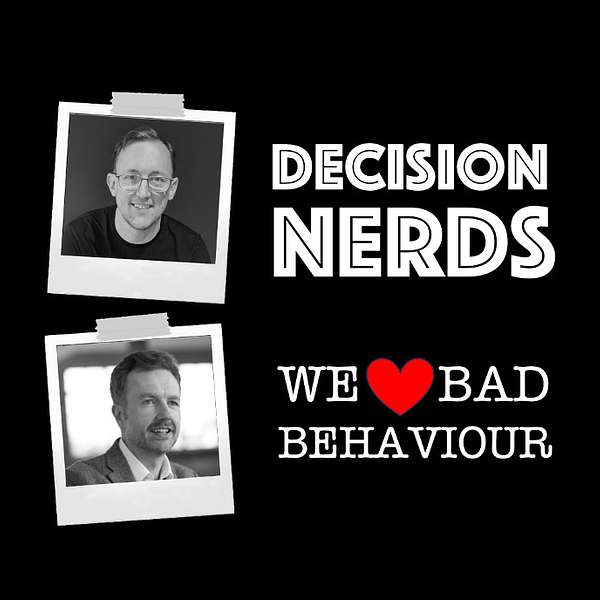
Decision Nerds
We talk about human behaviour and decision-making with an investment slant. And tell terrible jokes.
Join us as we dive into the trenches with industry innovators, academics and mavericks.
Decision Nerds
Diversity and Decisions: Things you don’t usually hear from a D&I advocate…
Our guest today, Tom Gosling, is a committed and thoughtful supporter of D&I. He's a practitioner turned academic who helps build bridges between researchers, policymakers and those at the coal face.
He has an interesting take on some important strategic and practical D&I issues that often get no, or very little, air time. If you have any interest in D&I and how it impacts decisions, there’s something here for you.
In this episode, we discuss:
The business case for diversity - why consultants might have different positions than academic researchers - consultant research and selling services vs. requirements of peer-reviewed research.
The four risks that overstating the business case for diversity can create.
What is the wider economic, moral and economic case for diversity and should we give more weight to this?
Diverse teams can generate the best or worst performance - why?
Understanding the role of social integration in making diversity work.
What should the corporation’s role be - social actor or adherent to the Friedman doctrine?
What are we not talking about that we should be?
1. The value of being clearer about the differences in demographic and cognitive diversity.
2. The strategic value in thinking about equilibrium diversity in a world free of bias and restrictions, i.e. would all occupations mirror societal demographics?
3. Do we have an undiverse approach to diversity - can there be many different types of diversity that we are not currently discussing?
Our reflections - Joe's 'Lefty lentil-eating-liberal rant' + Paul channelling 'Jerry's final thought'
Joe talked about the lack of diversity in the asset management industry and has written a blog post about it here: Why Are So Many Fund Managers Men?
Research mentioned by Paul
Alice Eagly
This paper gives a good overview of the advocacy/consultant-led approach vs. an academic one and notes factors discouraging research:
Fairness vs. Equality
This paper synthesises various strands of research to explain why we might prefer unequal societies

